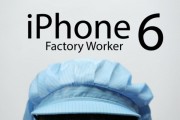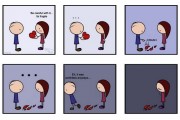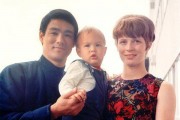Two weeks have passed since a little girl named Yueyue was struck by two vehicles and left to die in Foshan, Guangdong. We know the details: two drivers fled the scene, and numerous passersby ignored a child in pain. Kindness arrived too late in the form of a scrap peddler who pulled her up and went searching for help. Yueyue passed away from systemic organ failure eight days later.
As an outsider, it is far too easy to thumb our noses at this new example of a nasty, immoral Chinese society. The Yueyue tragedy has already encouraged many of my overseas Chinese friends to turn their backs on China. Many of us have a tenuous relationship with the part China plays in our Chineseness, and Yueyue’s case is ‘proof’ that this is an alien world. While proud to be ethnically Chinese, we wonder whether our values and traditions, inherited from forefathers who left China a century ago, have much to do with China’s society today. Friends have rolled their eyes at my decision to come to China to discover my roots; to them, those roots are planted in my great-grandparents’ home in southern Malaysia, not in a country that apparently ignores injured children. “Come home,” someone told me. “We’re afraid you’re going to grow a cold heart the longer you stay there.”
I haven’t jumped onboard the “us Chinese versus them Chinese” train. Though I’ve had unsettling experiences in China, these haven’t been enough for me to condemn this whole nation to an evil, inhumane “them.” There is this thing in the air that feels like ‘cold apathy’ to an outsider, but to the local Chinese is just a sense of ‘can’t make it my business or else.’ I don’t think there’s anything cruel about it. Blame the Cultural Revolution. Blame a Nanjing judge and compensation laws. Blame hopelessness. Blame fear.
You may call me an apologist, though for what, I’m not quite sure. For not wanting to condemn all of China based on this incident? Not wanting to hate Chinese citizens for this culture of fear that I may never understand? Even good people can be wary of stepping in to stop another’s suffering. There’s so much fear here, fear that goes in many directions — don’t want to meddle, don’t want to get in trouble, don’t want to be blamed, don’t want to regret helping — but there’s no desire to be responsible for creating pain and suffering in the first place.
The horror of a three-second decision
As I watched the horrific video of Yueyue in Foshan, my strongest emotions weren’t directed at the many people who rushed past her. To me, those people weren’t evil. They were unkind and unwilling to put another before themselves, but not evil. They hadn’t caused her pain, and their only crime was complete submission to cowardice. Nor did I feel anger at the second van that ran her over. At the steady speed he was going, I assumed he didn’t realize that he’d run over a child.
Instead, the most damning and damaging moment that has stayed with me, the complete horror of it all, are the three seconds when the driver of the first van pauses with Yueyue between his front and rear wheels. He then proceeds to intentionally cause the toddler additional pain and suffering by stepping on the gas.
Those few seconds changed everything. They transformed him from a humane being into a murderous creature. They transformed Yueyue from an injured girl into a crushed mess after the whole weight of the van was slowly applied across her upper torso for the second time. It took three seconds for her to become a mangled body, the back tires of the van seeming to crunch her up and spit her out, leaving behind a devastating trail of blood so noticeable, so slick, even in the grainy CCTV footage. In those three seconds, the incident morphed from an honest mistake into cruel murder.
After watching that, I was too numb to feel anything much for those 18 passersby.
In the shit-storm following the video’s release, rage has been focused on those who did nothing. As stated in this Telegraph article, “It is not the accident itself, but what happens next – or rather does not happen – that has left millions of ordinary Chinese wondering where their country is heading.” But while we’re asking all those worthwhile questions about Good Samaritans, and in some quarters arguing over whether mainland Chinese and overseas Chinese are inherently different, perhaps we shouldn’t lose sight of something else — Yueyue may not have needed to be saved by those 18 passersby if the rear wheels of that first van had never touched her body, if the driver had paused…and kept pausing. Maybe we should be examining the accident itself — what it is that made one van driver cold enough, bold enough, and perhaps scared enough to make a decision that, in three seconds, changed the life of one little girl forever.
Chen Xianmei: A flawed hero
In a story this heartbreaking, we’ve needed a hero to cling to. Chen Xianmei, the scrap peddler who dragged Yueyue off the road, has become that celebrated savior, because she was the only passerby who tried to DO SOMETHING.
However, it feels like a taboo to suggest that she may have helped in the wrong way. Not many commenters have pointed out that she likely did not do Yueyue any good by initially moving her into an upright position.
“She can’t sit up on her own!” I wanted to cry as I watched the footage. The video clearly shows Yueyue’s torso flopping over and collapsing when Chen Xianmei pulls her up by the arms and lets go; it’s as if the little girl has been severed in half. Yueyue is then picked up and carried away by her frantic mother. These scenes made me wince. Elsewhere, in a different place and under different circumstances, our hero (and the child’s mother) might not be hailed for saving Yueyue, but rebuked for exacerbating already severe internal injuries.
What a sad situation. We had people unwilling to be Good Samaritans, and a Good Samaritan whose first move was probably not in the child’s best interest, through no fault of her own. Chen Xianmei was absolutely right to do something. But it was heartbreaking to see that the only person who would stop to help, was unable to judge that the child was much too bloodied and injured to be moved in that manner.
In early September, the Health Ministry issued a detailed manual on how to help the elderly if they fall. The document was widely ridiculed online, especially because it was issued at around the same time as another Good Samaritan failure. But one of its recommendations was not to move the injured, which is sound advice however dismissively one may view the manual and other guidelines like it.
There is so much discussion out there about morality. But let’s not only focus on whether to be a Good Samaritan; we have to know how to do so in a way that minimizes injury. A nation of Chinese citizens moving, rolling, and lifting internally bleeding victims can be just as disastrous as standing by and doing nothing. Let’s talk about that, instead of creating these archetypes of demons (the evil 18 Chinese bystanders) and angels (simple, kind-hearted scrap peddler), and nonsense accusing Chen Xianmei of seeking fame. The only criticism of her should be that this kind woman didn’t know a better way to help the little girl.
A different form of this article originally appeared on Shanghai Shiok!









